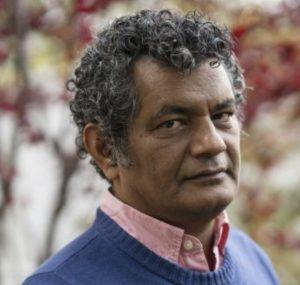Jonathan McAloon in The Irish Times:
 In Mohammed Hanif’s third novel Red Birds, US Air Force Major Ellie despairs of mission simulations being “dreamt up by some kid who’d never seen the inside of a cockpit”. Readers of literary fiction about war, if not of fiction in general, may feel a similar despair. Does the writer have enough authority to make their simulation convincing? Before Hanif was a Booker-longlisted author, or wrote for the New York Times and BBC, he trained as a pilot in Pakistan’s air force. What Major Ellie says about ejector seats and fireproof suits has the confidence of truth. But much more importantly, Hanif knows about the absurdity of war in a way that a civilian never could.
In Mohammed Hanif’s third novel Red Birds, US Air Force Major Ellie despairs of mission simulations being “dreamt up by some kid who’d never seen the inside of a cockpit”. Readers of literary fiction about war, if not of fiction in general, may feel a similar despair. Does the writer have enough authority to make their simulation convincing? Before Hanif was a Booker-longlisted author, or wrote for the New York Times and BBC, he trained as a pilot in Pakistan’s air force. What Major Ellie says about ejector seats and fireproof suits has the confidence of truth. But much more importantly, Hanif knows about the absurdity of war in a way that a civilian never could.
Ellie has been sent on a mission that is simply an “opportunity” to perform an act of courage that might distinguish him in his “straight line” of a career. It involves bombing a refugee camp in the middle of nowhere, “an outpost in a war that the war itself is not interested in”. (Hanif doesn’t specify the desert location; we feel it is an amalgam of borderlands between South Asia and the Middle East.) But after his plane goes down he is taken in, reluctantly, by the inhabitants of the camp. As he looks to find a way back home, a 15-year-old inhabitant Momo sees his chance to gain access to the deserted neighbouring US base.
More here.
